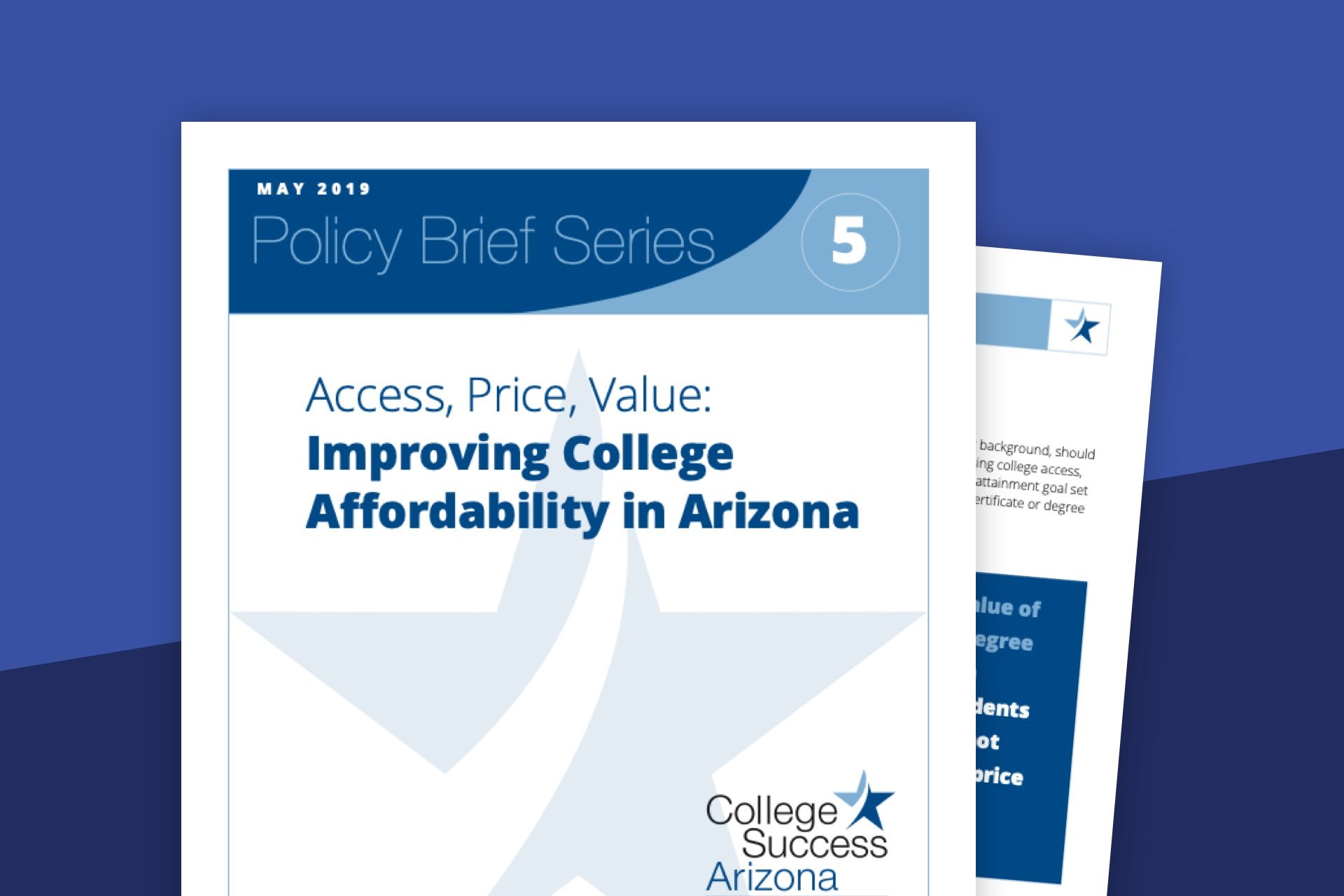
Focusing on the students: Creating impactful Promise Programs
By: Rich Nickel
Access to reliable financial aid is a crucial aspect in making college accessible and affordable to students. This is important if Arizona is to reach its aggressive postsecondary attainment goals and create a highly-skilled workforce to drive the economy into the future.
Except for aid provided at the discretion of individual institutions, today the state’s most financially needy students rely almost solely on federal aid like Pell Grants, Work Study, and Federal Student Loans identified through the Free Application for Federal Student Aid (FAFSA). Arizona is one of a handful of states that does not have a meaningful state-sponsored need-based grant aid program.
That could change, depending on the fate of three “promise” or “opportunity” scholarship bills that are presently making their way through the Arizona State Legislature.
Senate Bill (SB) 1572 would establish the Arizona Promise Scholarship Program to be administered by the Arizona Board of Regents (ABOR). This bill will create the Arizona Promise Scholarship Fund, which would appropriate a dollar amount that is to be determined from the state General Fund in fiscal year (FY) 2021.
SB 1463 would establish the Community College Opportunity Grants for eligible community college students to pay for tuition and approved fees. The Community College Opportunity Grant Fund would appropriate five million dollars from the state General Fund in FYs 2021 through 2025.
SB 1661 would establish the Arizona Promise Scholarship program and Arizona Promise Scholarship Commission. The bill would appropriate $96,000,000 from the state general fund in FY 2020-2021 and would award each eligible student applicant up to a $4,000 annual scholarship for community college tuition, for a maximum of two years.
In 2018, 94.5 percent of undergraduates at Arizona’s three largest public universities – Arizona State University, University of Arizona and Northern Arizona University – received a form of financial aid. This is why in 2019, we included creating a sustainable state-sponsored need-based grant aid program as one of our policy recommendations in our brief Access, Price, Value: Improving College Affordability in Arizona.
While College Success Arizona is encouraged by the bipartisan bills that show an expanding political will to address Arizona’s affordability barrier and provide vital supports to increase students’ access and success, there is more to be done to make sure they are equitable and sustainable.
A few years ago, a task force of Arizona’s financial aid practitioners and experts convened and recommended what a “strong” need-based aid program might look like.
Along with being robustly funded and sustainable, which has yet to be determined with these bills, there are four key principles of an effective aid program supporting Arizona’s lowest-income students:
- Need-Based Eligibility: The grants should be accessible to those with the most financial need:
- Application processes are often barriers and the best programs use already available data to match recipients with program funding, to ensure precise impact.
- SB 1572 does not fully meet this criterion, as it requires excellent academic merit to qualify. If the 3.5 GPA required is on a weighted scale that requires students to participate in advanced placement (AP) classes, which will create a barrier for low-income students, as students in lower-income districts are offered and enrolled in AP classes at much lower rates.
- SB 1661 does not meet this criterion because it requires students to not only complete an application, but the students must graduate high school with a 3.0 GPA and submit proof that they saved and deposited at least $500 each year into a defined account.
- Minus the application process, SB 1463 seems to meet this criterion by serving any student who graduates from high school or obtains an equivalent diploma and falls under the income ceiling of $65,000. However, a mechanism must be put in place to prioritize aid for those that are the most financially needy.
- Portability: The grants should be applicable to a variety of agreed-upon postsecondary institutions, and should follow the students:
- It’s unclear if SB 1572 provides portability or not, even among the public universities. However, it is clear that if a student moves to a community college or other college in Arizona, this award will not follow them.
- It’s unclear if SB 1463 provides portability or not, even among community college districts, but it is clear that a student cannot have the funds to follow them to a university or other Arizona college.
- SB 1661 does not meet this criterion because it has a maximum of two years of scholarship aid for community college students only and requires the students to re-apply and make an additional $500 deposit for year-two funding.
- Transparency: The program should be visible to middle and high school students and families to encourage performance and attainment:
- It’s unclear if any of the bills meet this criterion, but ABOR and the community colleges clearly recognize the importance of early awareness and transparency.
- It’s unclear if any of the bills meet this criterion, but ABOR and the community colleges clearly recognize the importance of early awareness and transparency.
- Accountability: Data should be collected and used to assess the success of the program:
- Each program has a proposed governance structure, but the evaluation and assessment criteria have yet to be designed for any of the proposed programs.
I would like to thank the state lawmakers for considering a direct investment in Arizona’s highest-need students and look forward to supporting well-designed legislation and programs that provide the greatest student impact and return on public investment.
Rich Nickel is president and CEO of College Success Arizona, where he leads the organization toward its goal of assisting all Arizonans in gaining access to, and successfully attaining, a college credential.
